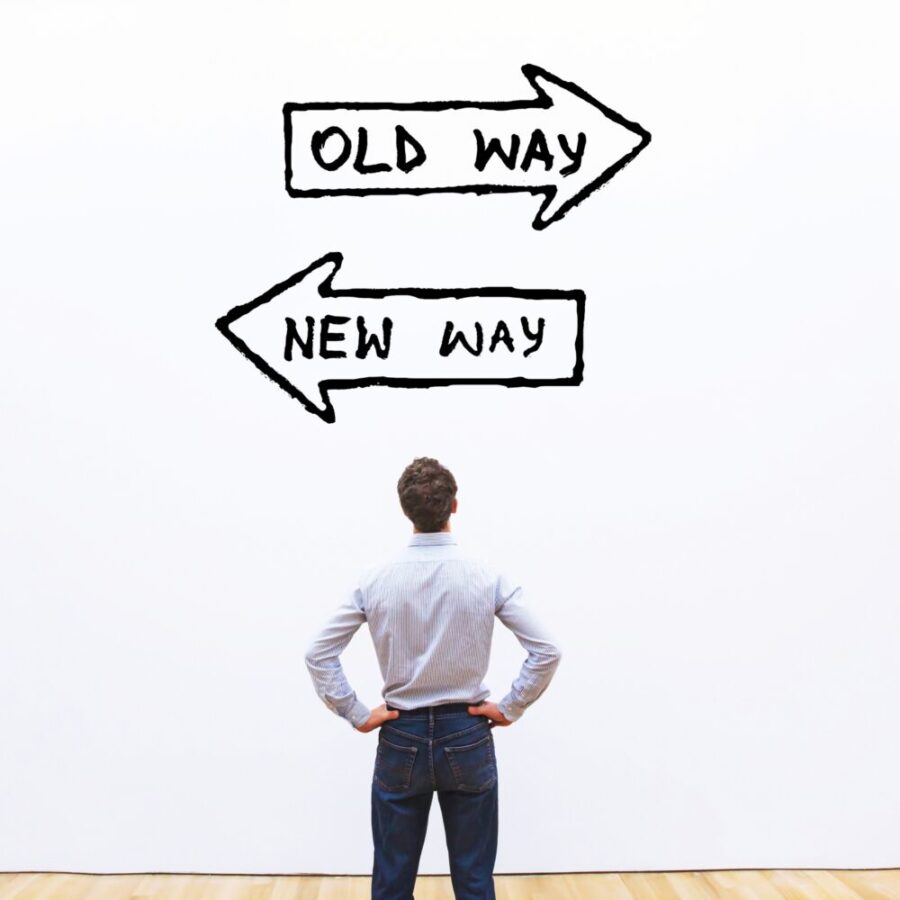
Generational gaps have always existed, but the divide between Boomers and Millennials seems particularly pronounced. From differing worldviews to clashing habits, several Boomer traits significantly irritate Millennials. Understanding these can foster better communication and harmony between these two influential groups.
1. Reluctance to Embrace Technology

Boomers often show resistance towards adopting new technologies, which frustrates tech-savvy Millennials. This reluctance manifests in the workplace, where outdated practices slow down efficiency. Millennials, who grew up with rapid technological advancements, find it puzzling when older colleagues struggle with basic tech tools. This gap leads to miscommunication and delays, causing friction between the generations. Embracing technology not only boosts productivity but also bridges the generational divide.
2. Preference for Traditional Work Structures

Many Boomers prefer the conventional 9-to-5 work schedule, which clashes with Millennials’ desire for flexibility. Millennials value work-life balance and often seek remote or flexible working options. The rigid structure favored by Boomers is seen as outdated, limiting creativity and personal time. This preference can lead to tension in workplaces striving to modernize their practices. Adapting to more flexible work environments could enhance productivity and satisfaction across all age groups.
3. Emphasis on Face-to-Face Communication

Boomers often prioritize in-person meetings, viewing them as essential for effective communication. Millennials, however, are comfortable with digital communication tools like Slack, Zoom, and email. This difference can cause frustration, especially when meetings could be handled more efficiently online. Millennials see unnecessary face-to-face interactions as time-consuming and less productive. Balancing both communication styles could improve workplace dynamics and efficiency.
4. Tendency to Rely on Experience Over Innovation

Boomers often lean on their extensive experience, sometimes overlooking innovative ideas from younger colleagues. Millennials, eager to bring fresh perspectives and innovative solutions, feel stifled by this mindset. The emphasis on “tried and true” methods can hinder progress and adaptability in fast-changing industries. Encouraging a culture that values both experience and innovation can drive growth and creativity. This balance is crucial for staying competitive in today’s market.
5. Aversion to Job Hopping

Boomers typically view long-term employment with a single company as a marker of success. Millennials, however, see job hopping as a way to gain diverse experiences and skills. This difference often leads to misunderstandings about loyalty and ambition. Boomers may view Millennials as unreliable, while Millennials see Boomers as stagnant. Recognizing the benefits of varied career paths can help bridge this perception gap.
6. Skepticism Towards Social Media

Boomers often approach social media with skepticism, seeing it as a frivolous or even dangerous pastime. Millennials, who integrate social media into their personal and professional lives, find this attitude outdated. The generational divide over social media can lead to conflicts over its use and benefits. Understanding the positive impacts of social media on networking, marketing, and information sharing can ease these tensions. Embracing social media can enhance connectivity and professional opportunities.
7. Fixed Views on Financial Management

Boomers tend to follow conservative financial practices, prioritizing savings and avoiding debt. Millennials, facing different economic realities, often adopt more flexible financial strategies, including investments and debt management. This difference can lead to judgment and misunderstanding about financial responsibility. Recognizing the distinct financial challenges and opportunities each generation faces can foster mutual respect. Tailored financial advice can help bridge the gap in understanding and approach.
8. Preference for Print Media

Many Boomers still prefer print media over digital formats, which seems inefficient to Millennials accustomed to instant access to information online. This preference can slow down information dissemination and create a disconnect in how news and updates are consumed. Encouraging digital literacy among Boomers can streamline communication and ensure everyone is on the same page. Adopting digital tools for news and updates can enhance accessibility and engagement.
9. Resistance to Change

Boomers often exhibit resistance to change, valuing stability and routine. Millennials, conversely, thrive on change and adaptability, seeing it as essential for growth. This resistance can impede progress and innovation, frustrating younger generations eager to implement new ideas. Embracing change can drive organizational improvement and foster a culture of continuous learning. Encouraging adaptability can benefit both personal and professional growth.
10. Criticism of Millennial Lifestyle Choices

Boomers frequently criticize Millennial lifestyle choices, such as prioritizing experiences over material possessions. This judgment can create a sense of misunderstanding and resentment. Millennials value experiences for personal fulfillment and social connection, which differs from the material success often prized by Boomers. Respecting diverse lifestyle choices can enhance intergenerational relationships and understanding. Recognizing the changing values can lead to more harmonious interactions.
11. Underestimating the Gig Economy

Boomers often view traditional full-time employment as the only valid career path, underestimating the gig economy’s value. Millennials, however, embrace gig work for its flexibility and opportunities. This underestimation can lead to undervaluing the contributions of freelance and gig workers. Recognizing the legitimacy and benefits of the gig economy can foster a more inclusive perspective. Supporting diverse work arrangements can attract and retain talent across generations.
12. Clinging to Hierarchical Structures

Boomers often favor hierarchical organizational structures, which can stifle collaboration and innovation. Millennials prefer flatter structures that encourage open communication and teamwork. The hierarchical approach can seem rigid and outdated to younger employees. Adopting more collaborative structures can enhance creativity and engagement in the workplace. Encouraging a culture of inclusivity and teamwork can bridge the generational divide.
13. Dismissive Attitude Towards Mental Health

Boomers often have a dismissive attitude towards mental health issues, viewing them as signs of weakness. Millennials, on the other hand, prioritize mental health and advocate for open discussions and support. This difference can lead to a lack of understanding and support for mental health initiatives in the workplace. Recognizing the importance of mental health can improve well-being and productivity. Promoting mental health awareness can create a more supportive and inclusive environment.
14. Nostalgia for the “Good Old Days”

Boomers often express nostalgia for the “good old days,” which can seem dismissive of current challenges and advancements. Millennials, facing unique economic and social pressures, find this nostalgia frustrating. This attitude can hinder progress and adaptation to contemporary realities. Embracing the present and future can foster innovation and resilience. Appreciating both past experiences and current advancements can create a balanced perspective.
15. Overemphasis on Home Ownership

Boomers often stress the importance of home ownership as a key to financial stability and success. Millennials, facing high property prices and different financial priorities, may not view home ownership as a viable goal. This overemphasis can create unrealistic expectations and pressure. Recognizing diverse financial goals and realities can promote better understanding and support. Offering flexible financial advice can help accommodate varying aspirations.
Bridging the Generational Divide

Addressing these generational differences requires empathy, open communication, and a willingness to adapt. By understanding and respecting each other’s perspectives, Boomers and Millennials can work together more harmoniously. Embracing change, technology, and diverse approaches to work and life can enhance cooperation and productivity. Let’s strive for a future where generational strengths are leveraged for mutual growth and success.



